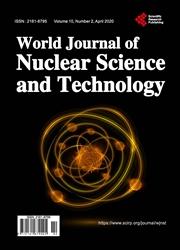Qualification of the ANET Code for Spallation Neutron Yield and Core Criticality in the KUCA ADS
引用次数: 1
Abstract
Innovative nuclear reactor concepts such as the Accelerator Driven Systems (ADSs) have imposed extra requirements of simulation capabilities on the existing stochastic neutronics codes. The combination of an accelerator and a nuclear reactor in the ADS requires the simulation of both subsystems for an integrated system analysis. Therefore, a need arises for more advanced simulation tools, able to cover the broad neutron energy spectrum involved in these systems. ANET (Advanced Neutronics with Evolution and Thermal hydraulic feedback) is an under development stochastic code for simulating conventional and hybrid nuclear reactors. Successive testing applications performed throughout the ANET development have been utilized to verify and validate the new code capabilities. In this context, the ANET reliability in simulating the spallation reaction and the corresponding neutron yield as well as computing the multiplication factor of an operating ADS are here examined. More specifically, three cores of the Kyoto University Critical Assembly (KUCA) facility in Japan were analyzed focusing on the spallation neutron yield and the neutron multiplication factor. The ANET-produced results are compared with independent results obtained using the stochastic codes MCNP6.1 and MCNPX. Satisfactory agreement is found between the codes, confirming thus ANET’s capability to successfully estimate both the neutron yield of the spallation reaction and the keff of a realistic ADS.KUCA ADS中散裂中子产额和堆芯临界度的ANET规范鉴定
创新的核反应堆概念,如加速器驱动系统(ads),对现有的随机中子码的模拟能力提出了额外的要求。在ADS中,加速器和核反应堆的组合需要对这两个子系统进行模拟以进行综合系统分析。因此,需要更先进的仿真工具,能够覆盖这些系统中涉及的广泛的中子能谱。ANET(先进中子演化与热压反馈)是一种正在开发中的用于模拟常规和混合核反应堆的随机代码。在整个ANET开发过程中执行的连续测试应用程序已被用于验证和确认新的代码功能。在这种情况下,ANET在模拟散裂反应和相应的中子产率以及计算运行ADS的倍增因子方面的可靠性在这里进行了研究。更具体地说,对日本京都大学临界组件(KUCA)设施的三个堆芯进行了分析,重点分析了散裂中子产率和中子倍增系数。将anet生成的结果与使用随机代码MCNP6.1和MCNPX获得的独立结果进行了比较。结果表明,两个代码之间的一致性令人满意,从而证实了ANET能够成功地估计散裂反应的中子产率和实际ADS的产率。
本文章由计算机程序翻译,如有差异,请以英文原文为准。
求助全文
约1分钟内获得全文
求助全文

 求助内容:
求助内容: 应助结果提醒方式:
应助结果提醒方式:


